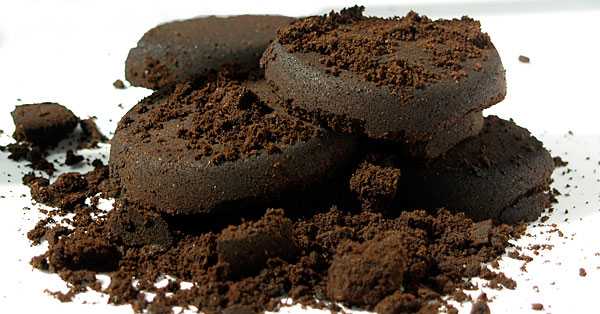SEJONG, South Korea – The Ministry of Environment (ME, Minister Han Jeoung Ae) of South Korea simplified the requirements and procedures for accepting used coffee grounds of coffee shops, classified as household wastes, as circular resources (circular resource recognition system1). Since amending such regulations typically takes at least six months to be implemented, ME applied the amended rules from March 15 using proactive governance2.
Coffee grounds discharged from coffee shops are currently classified as household wastes that must be disposed of in volume-based garbage bags for incineration or burial in landfills. Despite their potential for reuse as compost, construction materials, and even plastic products, spent coffee grounds have been incinerated or landfilled, resulting in diverse issues such as carbon emissions3. The domestic volume of used coffee grounds has recently increased4 1.6 times due to escalating coffee consumption. However, the Wastes Control Act stipulates that only businesses that have acquired permission or filed a report are allowed to collect or handle spent coffee grounds, creating a barrier in proactive recycling of increasing coffee residues.
Last year, the Ministry approved rice husks bran as circular resources. Corrective action to include coffee grounds as circular resources and exempt them from waste-related regulations has significant meaning because it has broadened the scope of circular resources, which only included industrial wastes, to include household wastes as well. Given that used coffee grounds have a higher heating value than regular wood pellets when used as fuel, ME recognized the spent coffee grounds as circular resources when used as biofuel other than their designated purposes5.
Both cases are deemed to satisfy the recognition criteria of circular resources according to the Framework Act on Resources Circulation.
1. When the spent coffee grounds are recycled after passing the Environmental Assessment for Recycling6 and acquiring the approval of the Minister of Environment.
2. When Coffee dischargers indirectly supply spent coffee grounds to recycling centers through distributors
Meanwhile, considering that most coffee shops are run in a franchise business form, the Ministry allows franchisers to apply for recognition as circular resources on behalf of their franchisees at the franchisers’ local Environmental Office of jurisdiction. In this case, local Environmental Offices that received the application are obliged to notify each environmental office of each franchisee’s jurisdiction and will be assisted by the latter for application screening, including site inspection. Considering that franchisers have similar properties of coffee grounds discharged from their franchisees, they will be exempted from the entire screening process, including process and facility inspection, hazardous substance analysis, and experts’ opinions. A visual inspection will be conducted in some business sites only.
ME will issue an administrative announcement for twenty days starting March 15 regarding the amendment of the “Notice on the Procedures and Methods for Recognition of Circular Resources” that conveys partial information on the recognition criteria for spent coffee grounds. Details on the amendment are available at opinion.lawmaking.go.kr. Should coffee grounds be recognized as circular resources and are not considered wastes, they are permitted to be transported by regular vehicles rather than designated garbage collection and transport vehicles. It is expected that used coffee grounds will be converted into meaningful resources instead of being discarded as waste since ME has removed restrictions such as approval or reporting for recycling.
1 A system that recognizes substances that are not harmful to human health and the environment and have high value as resources as “circular resources.” Once it is recognized as a circular resource, the substance will be exempted from waste regulations and only subject to yearly production performance monitoring
2 When related regulations or unclear legislations hamper active decision-making, ME proceeds to implement the work by soliciting advice from the Proactive Governance Committee where the third-party experts have participated.
3 338 kilograms of carbon dioxide discharged from 1 ton of incinerated coffee grounds
4 2012: 93,397 tons → 2019: 149,038 tons estimated (source: National Assembly Research Service, 2020)
5 According to Article 3(6) of the Enforcement Decree of the Framework Act on Resources Circulation, only the following materials are recognized as circular resources: (a) substances used as raw materials of animal feed, fertilizer, wooden products, or products related to activated carbon or graphite, and (b) substances used directly as animal feed or fertilizer or for any other agricultural activities
6 A system that, in accordance with Article 13-3 of the Wastes Control Act, predicts and evaluates environmental and health hazards regarding new recycling purposes and methods for which recycling principles and standards are yet to be established. A person is then approved for recycling when safety is ed.










